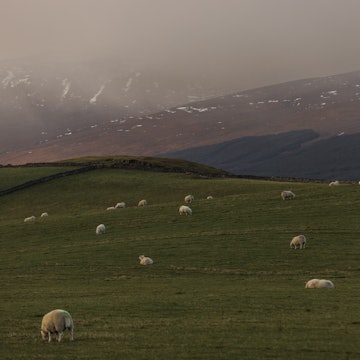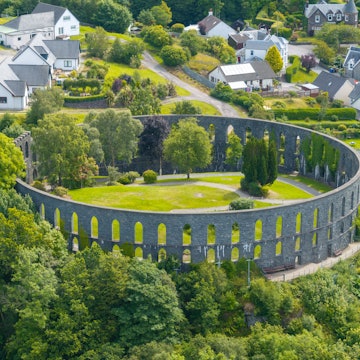
Exploring Edinburgh’s classic architecture and contemporary design

Mar 16, 2022 • 7 min read
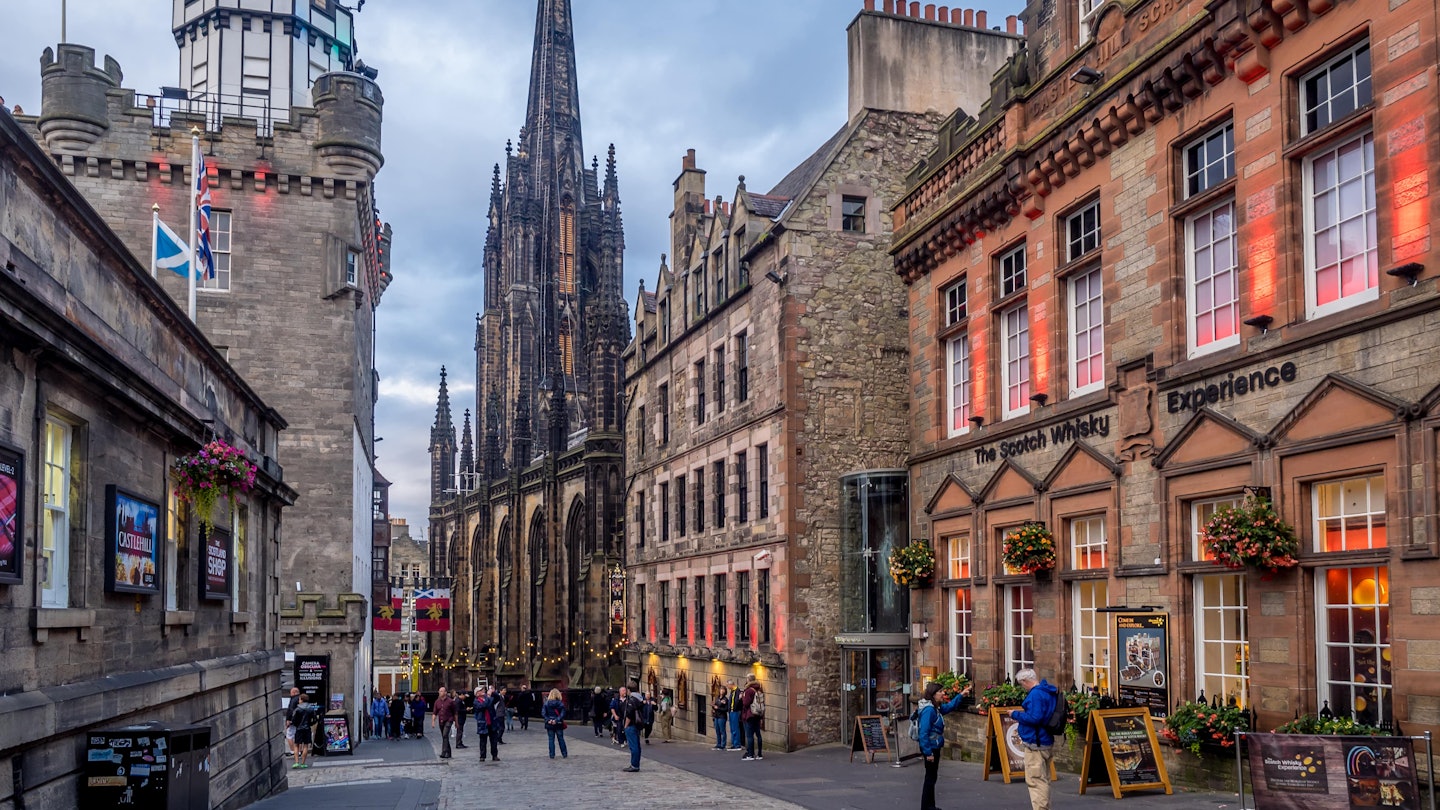
Edinburgh's architecture is immediately recognisable © Jeff Whyte/Getty
Edinburgh may be famed for its castle, the Fringe and its riotous Hogmanay celebrations, but the unsung heroes of the city are its sublime design and architecture. With contemporary design haunts and magnificent medieval and classical buildings adorned with intricate stone-carved decorations, the Scottish capital is the perfect blend of the nostalgic and the modern.
Here's a guide to some of the best ways to experience the most imposing manifestations of Edinburgh's great creativity.
Introducing Edinburgh’s ambitious architecture
Picture Edinburgh in your mind's eye, and you'll summon up a vision of dark and moody sandstone churches and tall townhouses. In fact, the city gathers many of Scotland’s greatest architectural assets into one place. The first structure to catch the eye is Edinburgh Castle, with its flamboyant nips and tucks, baronial towers and imposing battery – all made from stone hewn from the nearby Craigleith and Slateford quarries.
Move on from the spectacular perch of Castle Rock to the imagination-sparking tombs and monuments of Calton Hill, where you can look out over a procession of spiny towers, tolbooths and weathered tenements studding the Edinburgh skyline. The city is a hotbed of world-class architecture, and the style of local buildings is quite unlike anything you'll find elsewhere in the United Kingdom, or even in Europe.
Downtown Edinburgh wears an armor of hard-wearing igneous and metamorphic rock – indeed, the city owes its distinctive character to a dormant volcano that last erupted 340 million years ago. The eroded core of this prehistoric volcano still rises above the city as the green-and-grey ridge of Arthur's Seat.
For all the geological history in Edinburgh’s bones, there is also a sense of modern drama and future potential. Consider the ambitiously bold St James Quarter project, which saw a longstanding eyesore razed to the ground and an ambitious, controversial new architectural icon embedded amidst the nostalgic Georgian architecture of the East End. Or how about Leith, with its ever-changing carousel of restored warehouses and salvaged yards? This is the flavor of an ever-evolving, here-and-now city.

Take an Edinburgh architecture walk
Thanks to the hilly terrain, there’s always an element of hard work required to appreciate Edinburgh’s finest pieces of architecture. Start up high on Castle Rock, with a tour around the courtyards and towers of Edinburgh Castle. Little has changed here in architectural terms since the 1920s, but prior to this, a succession of kings and queens toyed with the appearance and layout of the castle, adding fortified gatehouses, memorials and medieval-inspired towers over the centuries.
At the other end of the spectrum, down the Royal Mile, the Scottish Parliament Building at Holyrood is the most exuberant example of modern design in the city. Ruffling feathers when it opened in 2004 – starkly modern, and £374 million over budget – its organic branch-shape was created to complement the surrounding landscape of red cliffs and volcanic green hills. You'll have to look down on the building from above to fully appreciate the leaf-shaped buildings and grass-roofed porticoes from master architect Enric Miralles.
Next up is the National Museum of Scotland, a hybrid of classical Greco-Roman style and castle-inspired neo-Brutalism, complete with baronial turrets. The centerpiece of this wonderful institution is the light-filled atrium of the Grand Gallery, home to whale bones and a 19th-century lighthouse lens. This enormous glazed hall was inspired by the long-vanished Crystal Palace, built in London as part of the Great Exhibition in 1851.
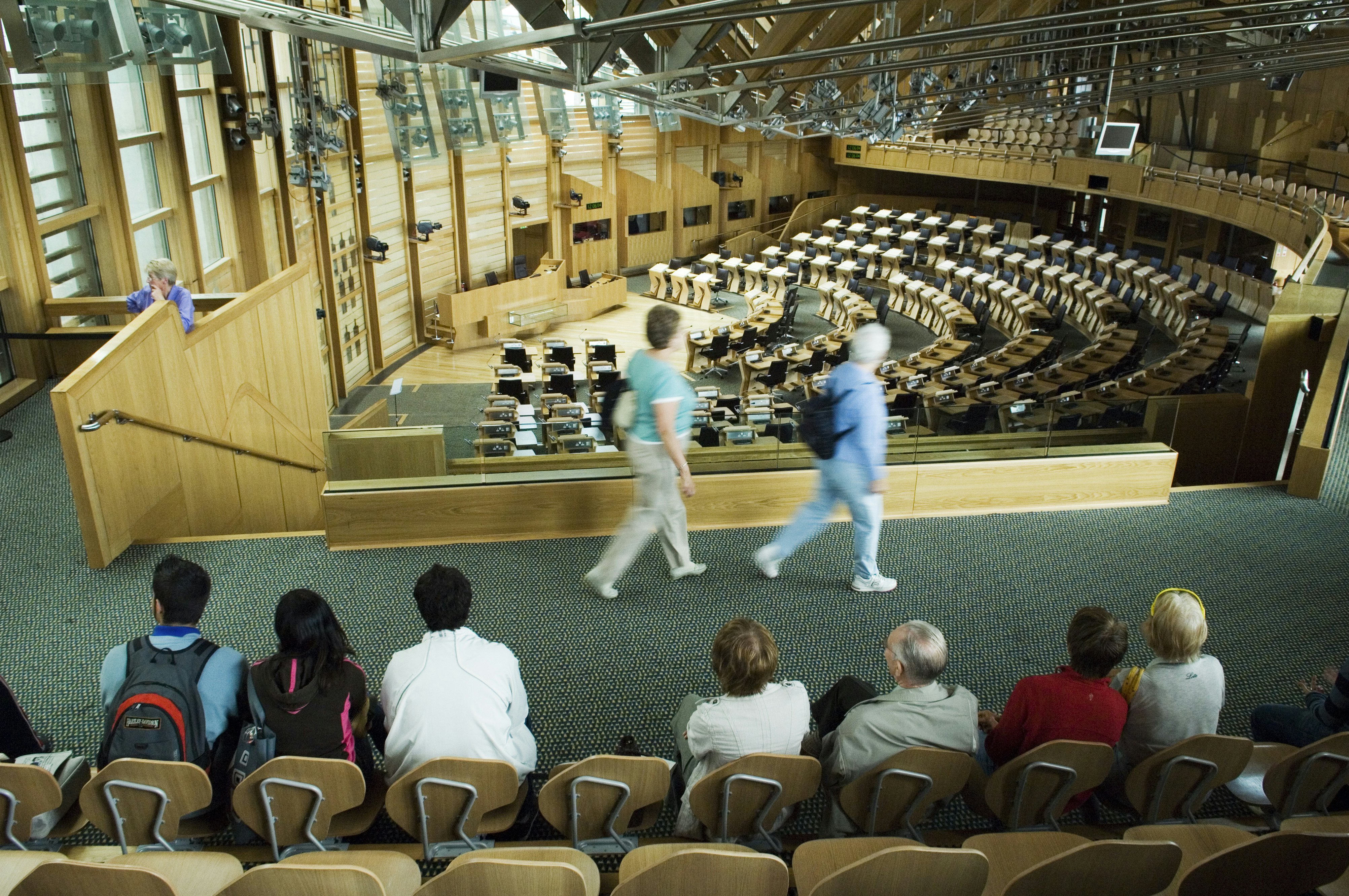
For those seeking a gentle fusion of modernity and tradition, a trip across to the West End will drop you at the Scottish National Gallery of Modern Art, framed by a landscaped lawn and sinuous water features designed by Charles Jencks in 2002. Here, there are two buildings to ogle at: imposingly neoclassical Modern One, and Modern Two, originally a hospital for orphans. Nearby is Dean Village, Edinburgh’s very own secret suburb, with former mill buildings, photogenic bridges, red sandstone courtyards and a landmark clock tower.
To best appreciate the city skyline, you need a high vantage point. From the beautiful viewpoint atop Calton Hill, in the shadows of the sandstone National Monument of Scotland – never finished and modeled on the Parthenon in Rome – you can see past, present and future Edinburgh collide.
Survey a best-of selection of architectural styles, from the Athenian-style of the Dugald Stewart Monument to the Tuscan-Doric look of the City Observatory. To linger awhile, make a booking for the contemporary, cantilevered dining room at The Lookout – run by the same team as the charming Gardener’s Cottage, this is one of the finest haute cuisine restaurants in the city.
Onwards to Leith now, ducking through the open-air atriums of the fabulous new St James Quarter. From here, the city center slopes northeast towards The Shore, which delivers a wondrous selection of pubs, bars, restaurants and cultural venues — many tucked into reclaimed spaces in once-derelict buildings.

How to get around: Walk! There are distances to cover, but nothing too onerous, and the more Edinburgh streets, alleys and closes you use to criss-cross the city, the more you will see. Just don’t forget an umbrella for those unpredictable days. Alternatively, rent a bike – just west of The Meadows, Biketrax has a good selection.
When to go: Edinburgh is good for walking at any time of the year, though the summertime sees the lowest chances of rain. For crowd-free streets, consider May or September. For the best photographs, the time to start is before sunset, when the buildings are soaked in silhouette and the low, golden light is at its most atmospheric.
Experiencing contemporary design in Edinburgh
How could a Unesco-listed city that’s home to the world’s largest arts festival not be a creative hotspot? It figures that Edinburgh would be chock-full of both historical and contemporary design, and the Old and New Towns thrum with slinky new creative spaces. Edinburgh may not move in the same glam design circles as New York, London or Paris, but for those with a nose for the next big thing, there’s plenty to discover if you know where to look. Here are some top stops to get you started.
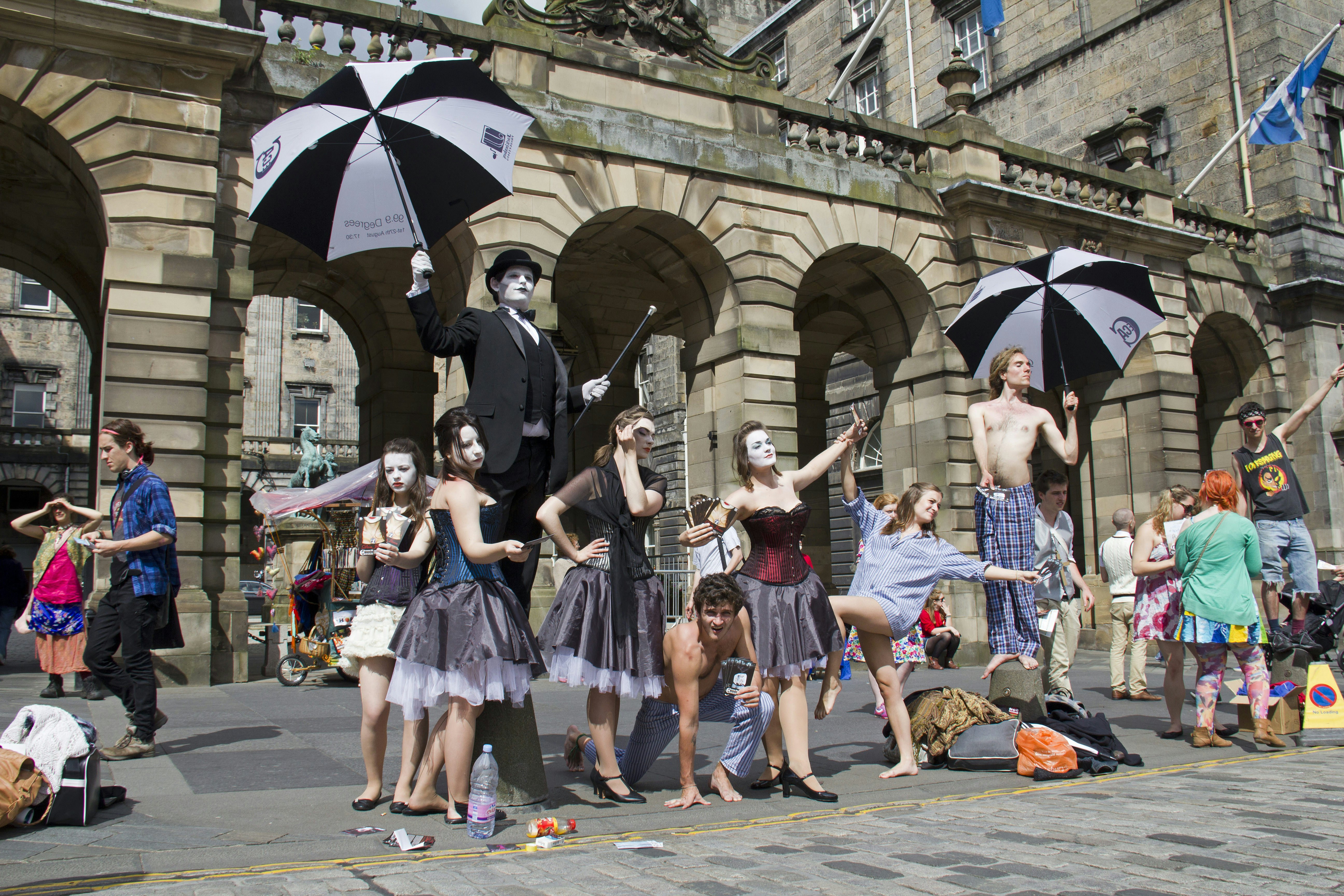
Scottish Design Exchange
This commendable social enterprise brings modern design ideas right into the heart of the New Town, with a remit to support up-and-coming creatives. It's the kind of undertaking you might usually expect to find in the West End, Stockbridge or Bruntsfield, but this collective representing 330-plus designers has managed to eke out a space between the chic stores of George St. More wonderful still, every pound spent goes directly to the creatives themselves, so set aside some time to browse and support local designers.
Edinburgh Design School
Now in its tenth year, this independent educational institution has one steadfast guiding principle: to bring pottery back into the mainstream. A packed calendar of ceramics shows and weekend pottery courses attracts a steady stream of visitors to its Easter Rd hub. Providing another jolt of energy for this oft-overlooked artform, the Design School supports a whole ceramics ecosystem for local hobbyists and wannabe pro potters.
Edinburgh Art Festival
A platform for the work of art and design figureheads of today and tomorrow, this lively art festival is a key part of the famous Edinburgh Festival Fringe, running from late July to late August. What started as a sideshow to all that comedy, music, theatre and drama is now a city-wide celebration of Scotland’s best visual art, providing a welcome excuse for galleries, museums and studios to showcase emerging talent.
More tips, from tapestries to typefaces
You can engage with many of the Edinburgh Art Festival’s creatives year-round. Among the local studios to consider visiting are Dovecot Studios (for tapestries in a renovated, Victorian-era swimming pool on the edge of Old Town), Edinburgh Printmakers (for head-spinning prints in post-industrial Fountainbridge), and Jupiter Artland – a summer-only sculpture park located to the west of the city in the grounds of historic Bonnington House.
You might also like:
7 best museums in Edinburgh
How to explore Edinburgh on two wheels
Edinburgh on a budget: how to make your money go further








